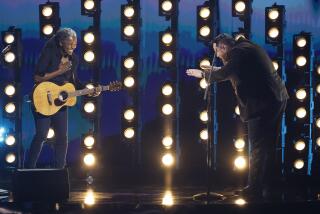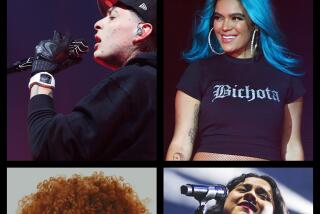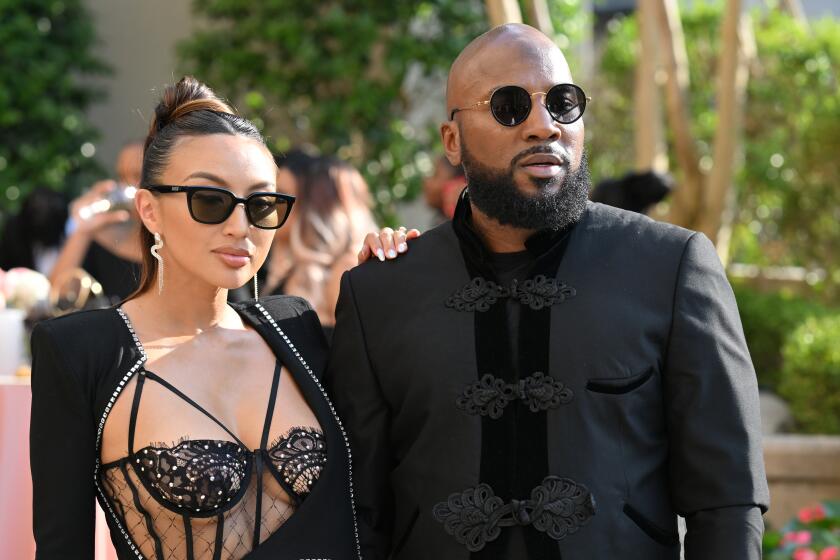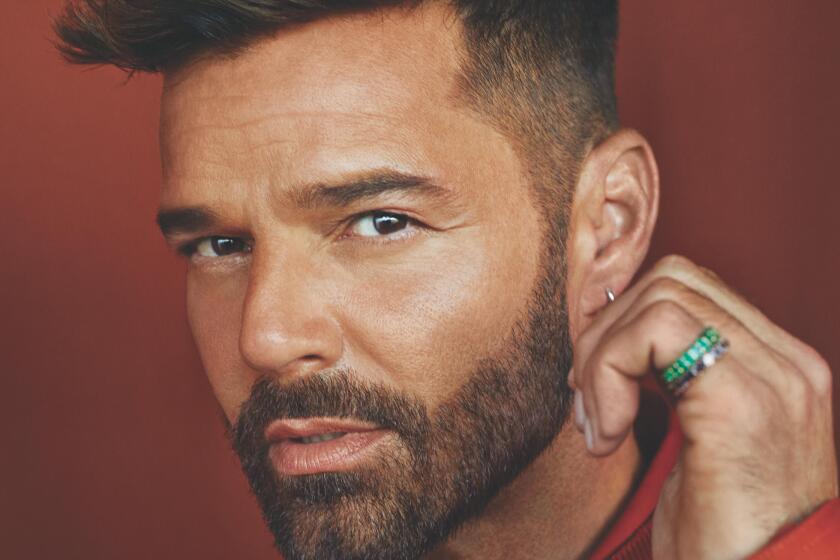Hip-hop has long dominated culture — what took so long for it to dominate the Grammys?
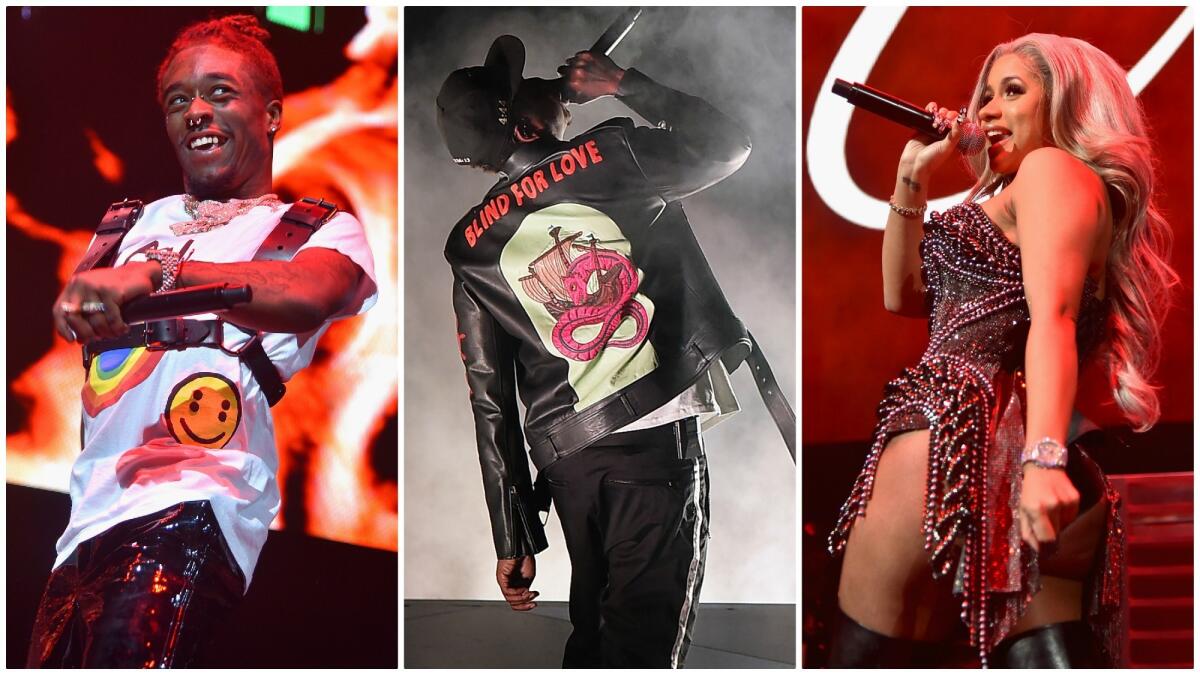
Once considered a passing fad, hip-hop has permeated American pop music and become the most influential sound in the genre over the last half century. Its artists have gone from being persecuted over lyrics to bona-fide pop stars, corporate pitchmen, Hollywood players, tech moguls and label executives.
And now, after being largely overlooked in major categories for nearly four decades, this latest crop of Grammy nominations finally reflect the genre’s continued prominence.
“Rap is so big, people can’t deny,” said Joie Manda, executive VP of Interscope Geffen A&M. “The influence … you just feel it.”
Jay-Z leads this year’s nominees with eight for his incredibly personal “4:44,” followed by Compton rapper Kendrick Lamar with seven. Both emcees are up for album of the year and landed in either record or song of the year. Among the diverse crop of tunes they’ll compete with are Luis Fonsi’s reggaeton-pop anthem “Despacito,” rapper Logic’s powerful track about suicide “1-800-237-8255,” Childish Gambino’s funky soul groove “Redbone” and Bruno Mars’ retro hip-hop soul joint “24K Magic.”
GRAMMY NOMINATIONS 2018: Live updates »
Buzzy rapper Lil Uzi Vert will vie for new artist against a crop of fresh faces that also includes singer-songwriter Sza, the first lady of hip-hop powerhouse label Top Dawg Entertainment. Young acts such as Cardi B, Migos and Rapsody litter the nominations instead of the perennial country strummers or genial pop favorites voters have long favored.
“Like the Grammys is a big deal,” said Symere Woods, who raps as Lil Uzi Vert. “It feels crazy to be nominated for new artist. It’s been a really great year.”
It’s the heaviest the big four categories have leaned toward hip-hop, illustrating a broader reach for diversity that extends beyond any one genre of music.
“I think the nominations are a reflection of a very savvy current voting membership who really do have their fingers on the pulse of what is happening in music,” Recording Academy President Neil Portnow told The Times.
Portnow credited ongoing efforts by the academy to insure its voting members were actively engaged in making music, the impact rap and urban music has had commercially and culturally as well as the introduction of online voting for the dominance of hip-hop in general categories.
But hip-hop’s Grammy sea change comes after decades of fraught relations between its artists and the Recording Academy.
When the first rap Grammy was handed out in 1989, a decade after the genre’s birth, nominees Salt-N-Pepa, DJ Jazzy Jeff & the Fresh Prince, LL Cool J and Kool Moe Dee all famously boycotted because the award wouldn’t be televised on-air. If they don’t want us, we don’t want them,” Salt-N-Pepa said. The contentious relationship didn’t end there.
Just two hip-hop albums — Lauryn Hill’s “The Miseducation of Lauryn Hill,” which the academy categorized it as R&B, and OutKast’s “Speakerboxx/The Love Below” — have won album of the year. Song and record of the year have never gone to rap artists and only four hip-hop acts have won best new artist in the award’s 58-year history.
A survey of some of the genre’s most defining acts further prove the disparity. Snoop, Ice Cube, Nas, Public Enemy, Tupac Shakur, Biggie and A Tribe Called Quest (ignored this year for its fantastic final album “We Got It from Here... Thank You 4 Your Service”) have all never won a Grammy.
There’s been countless flaps over the year over major snubs. The Recording Academy has been called out by the likes of Kanye West, Jay-Z, 50 Cent and hip-hop mogul Steve Stoute – who once spent $40,000 on a full-page ad in the New York Times to blast Portnow and the academy for being out of touch.
When Macklemore & Ryan Lewis bested leading favorite Lamar for rap album in 2014 the fallout was so intense Macklemore sent Lamar an apology. J. Cole once rapped a seething verse mocking the Grammys’ embrace of pop-leaning Australian rapper Iggy Azalea.
“Look around my … white people have snatched the sound / This year I’ll probably go to the awards dappered down / Watch Iggy win a Grammy as I try to crack a smile,” he rapped.
It was all but certain that rap would dominate this year considering R&B/hip-hop proved to be the most consumed genre — after combining album sales and on-demand streaming figures — for the first time in history, according to Nielsen Music’s mid-year report. In fact, the total volume of R&B/hip-hop consumption was nearly as much as the totals of rock (which leads in pure album sales) and pop combined.
With such critical and commercial success, Grammy voters had no choice but to embrace hip-hop in major categories or risk once again accusations of being out of touch.
“You can’t deny the power of hip-hop,” said Allen Hughes, director of “Menace II Society” and “Dead Presidents,” films born out of the explosion of gangster rap in the early 1990s. He’s nominated for music film for his ambitious Dr. Dre and Jimmy Iovine documentary “The Defiant Ones.”
“Hip-hop is the most malleable genre. You can do anything with hip-hop,” Hughes continued. “It was bound to take over.”
Added Manda: “The Grammys is one of the last victory laps for urban music. The youth has been frustrated [for] years. And now, the Grammys is starting to mirror what’s going on in the world and urban’s influence on pop culture. It feels like the Grammy sees it.”
Times staff writer Randy Lewis contributed to this report.
More to Read
The biggest entertainment stories
Get our big stories about Hollywood, film, television, music, arts, culture and more right in your inbox as soon as they publish.
You may occasionally receive promotional content from the Los Angeles Times.
